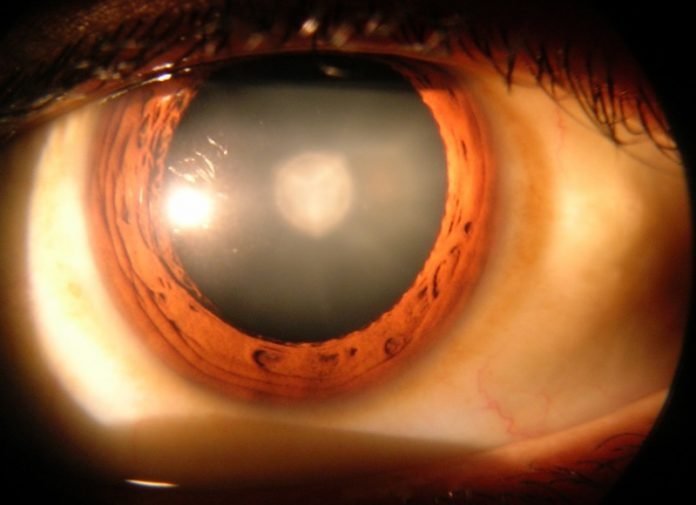
Scientists from Anglia Ruskin University found a revolutionary new treatment for cataracts that has shown extremely positive results in laboratory tests.
The finding gives hope that the condition, which currently can only be cured with surgery, could soon be treated with drugs.
The research is published in Investigative Ophthalmology and Visual Science and was conducted by Professor Barbara Pierscionek et al.
A cataract is a clouding of the eye lens that develops over time and affects the quality of vision.
It is caused by disorganization of the proteins in the lens that leads to clumps of protein forming, which scatter light and severely reduce transmission to the retina.
Cataracts cause vision loss and blindness for millions of people worldwide.
The team has been carrying out advanced optical tests on an oxysterol compound that had been proposed as an anti-cataract drug.
In laboratory tests, treatment with the oxysterol compound VP1-001 showed an improvement in refractive index profiles—a key optical parameter that is needed to maintain high focusing capacity—in 61% of lenses.
This means that the protein organization of the lens is being restored, resulting in the lens being better able to focus. This was supported by a reduction in lens opacity in 46% of cases.
This finding showed the positive effects of a compound that had been proposed as an anti-cataract drug but never before tested on the optics of the lens.
It showed that there is a remarkable difference and improvement in optics between eyes with the same type of cataract that was treated with the compound compared to those that were not.
The team also found improvements occurred in some types of cataracts but not in all, indicating that this may be a treatment for specific cataracts.
This suggests distinctions may need to be made between cataract types when developing anti-cataract medications.
It is a significant step towards treating this extremely common condition with drugs rather than surgery.
If you care about eye health, please read studies about eye problems linked to higher risk of dementia, and popular diabetes drugs can help prevent some eye disease.
For more information about eye diseases, please see recent studies about diet linked to blinding eye diseases, and results showing these foods may damage your eyes.
Copyright © 2022 Knowridge Science Report. All rights reserved.



